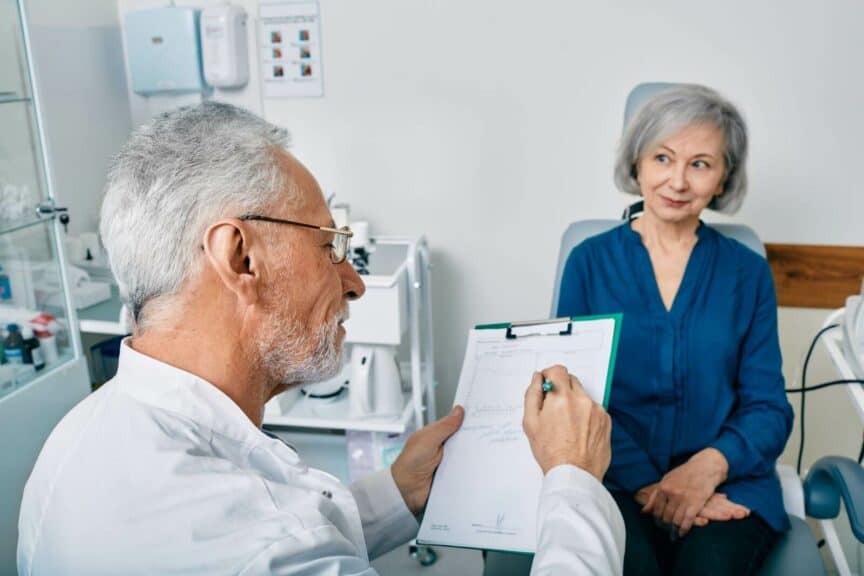March 3rd is World Hearing Day, a day aimed at raising awareness about the importance of hearing health and early detection of hearing loss. This year’s theme is “Ear and hearing care for all,” highlighting the need for accessible and inclusive hearing healthcare services. One crucial aspect of this is the integration of ear and hearing care within primary care.
While primary care physicians (PCPs) are essential in healthcare, they might not always be the best resource for diagnosing and treating hearing loss. In this article, we’ll explore why PCPs might miss hearing loss, signs and symptoms of hearing loss, the importance of early detection and treatment, and steps you can take to address hearing loss.
Why PCPs Might Miss Hearing Loss
PCPs are trained to address various health concerns, from routine checkups to complex diagnoses. However, they might not have the necessary training or resources to detect hearing loss accurately. Factors that contribute to this include:
- Limited time and resources during appointments: PCPs often have to address multiple health concerns in a single appointment, leaving little time to delve into each issue in-depth. This can make it challenging for them to identify hearing loss, especially in cases where patients don’t mention it as a concern.
- Lack of formal training in audiology and hearing healthcare: While PCPs might be aware of hearing loss, they might not have the same level of expertise as a hearing healthcare professional. This can result in missed diagnoses or delayed treatment.
- Focus on other health concerns and symptoms: Depending on the patient’s medical history and current health status, PCPs might prioritize other health concerns and symptoms over hearing loss, even if the latter is present.
Signs and Symptoms of Hearing Loss
Hearing loss can manifest in various ways, and the symptoms can vary depending on the severity of the loss. Some common signs and symptoms of hearing loss include:
- Difficulty hearing in noisy environments
- Asking others to repeat themselves frequently
- Turning up the volume on the TV or radio
- Struggling to follow conversations, especially in group settings
- Tinnitus (ringing in the ears)
- Feeling fatigued or stressed after social interactions
It’s worth noting that some of these symptoms can be mistaken for other health concerns, such as cognitive decline or depression. This highlights the importance of seeking a professional hearing evaluation to rule out hearing loss as the underlying issue.
Importance of Early Detection and Treatment
Untreated hearing loss can have negative impacts on various aspects of a person’s life, including their social interactions, mental health, and cognitive function. It can also increase the risk of falls and accidents. Fortunately, early detection and treatment of hearing loss can mitigate these risks and improve overall quality of life.
Hearing healthcare professionals can conduct a thorough evaluation to determine the type and severity of hearing loss and recommend appropriate treatment options, such as hearing aids, cochlear implants, or other assistive listening devices. Early treatment can also prevent further hearing loss and reduce the likelihood of developing associated health concerns, such as depression or cognitive decline.
Steps You Can Take to Address Hearing Loss
If you suspect that you or a loved one might be experiencing hearing loss, there are steps you can take to address it:
- Be self-aware and advocate for yourself: Pay attention to your hearing health and mention any concerns to your PCP or a hearing healthcare professional. Don’t be afraid to ask for a hearing evaluation or seek a second opinion.
- Find a hearing healthcare professional: A hearing healthcare professional, such as an audiologist or hearing aid specialist, can conduct a comprehensive hearing evaluation and recommend appropriate treatment options.
- Consider hearing aids: Modern hearing aids are discreet, comfortable, and customizable to fit your hearing needs and lifestyle. They can significantly improve your hearing and quality of life.
- Practice good hearing hygiene: Protect your hearing by avoiding loud noises, wearing earplugs in noisy environments, and taking breaks from prolonged exposure to loud sounds.
At our hearing practice, we are committed to providing comprehensive hearing healthcare services that cater to your unique needs. If you or a loved one are experiencing hearing loss or have concerns about your hearing health, we encourage you to schedule a hearing evaluation with our team. Early detection and treatment of hearing loss can improve your quality of life and prevent further hearing loss. Contact us today to learn more about our services and how we can help you hear better.
In conclusion, while PCPs are great for many things, they might miss your hearing loss. However, early detection and treatment of hearing loss can significantly improve your quality of life and prevent further hearing loss. By being self-aware, seeking a hearing evaluation, and finding a hearing healthcare professional, you can address hearing loss and enjoy a better quality of life. Don’t wait – prioritize your hearing health today for World Hearing Day.

